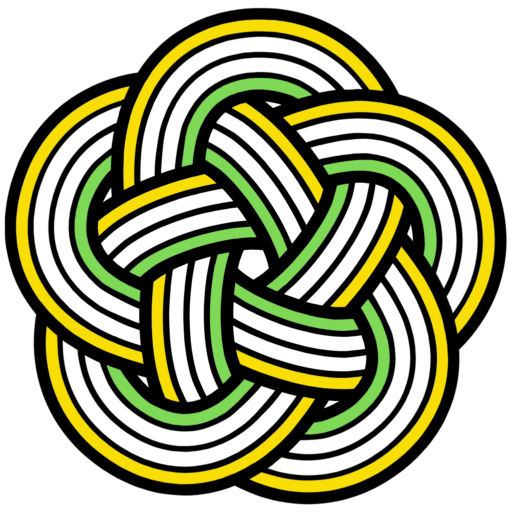5 Lessons from a Life Coach
By Becky Mollenkamp, PCC
As a life coach, clients (and strangers) sometimes ask me to solve their problems. They want me to tell them the secrets to finding the perfect job, choosing the right partner, being happy. But guess what? I don’t have the answers.
Coaching isn’t telling people what to do! Practiced properly, coaching is holding up a metaphorical mirror that allows a person to see their own truth, find their own answers, and make their own choices.
A coach is a guide, a questioner, a cheerleader … a coach isn’t a Magic 8 Ball.
I’m not here to tell anyone what to do, but I have learned a lot from my clients—and I feel confident sharing these life coaching tips for success. After hundreds of clients over several years, I know these lessons from a life coach can be life-changing.
1. You aren’t broken
Every time a client says, “I feel so broken,” my heart breaks a little. There’s nothing wrong with you just because you haven’t reached all of your goals, sometimes feel lost or out of control, or otherwise don’t have everything figured out.
Feeling stressed, sad, frustrated, lonely … anything … is normal. Wanting more for your life, or longing to be okay with less, is normal. Not really knowing what the hell you want is normal.
The world around you (including far too many coaches) need you to believe that you are broken. Profits and power depend on you believing it.
The truth is, though, you aren’t broken. You are normal and wonderful. Release the shame, and embrace self-compassion as you endeavor toward personal growth.
2. Your thoughts aren’t trash
Related to #1, my heart breaks every time I see a coach tell people to label thoughts as “trash” (or gremlins or trolls etc.) and feelings as toxic.
This is a patriarchal notion trapped inside the binary. It’s patently false that everything must be either good or bad, right or wrong. Truth exists in the gray, in the duality. Life is messy, and so are our thoughts and feelings. That’s not bad or wrong, it simply is.
All of your thoughts and feelings serve a purpose, they all are part of you, and they all are valid and worthy.
Releasing the judgment of thoughts and feelings is at the heart of developing self-compassion. Learning to feel your feelings, witness your thoughts, and love the totality of your being is essential on the path to liberation.
3. Be kind to yourself
As you can see from #1 and #2, I’m a big proponent of self-compassion. That’s because I’ve seen that learning to be kind to yourself and keep yourself safe is how we build self-trust. And people who trust themselves are the ones who become unstoppable.
How do you develop self-compassion? Again, see #1 and #2. Start by bringing concentrated awareness to all the times when you judge yourself (and if you’re a normal human, it is a lot). Don’t judge the judgment. Notice it, and gently nudge yourself into curiosity instead.
What is this really about? What fear might be underlying this thought? What feeling might I be avoiding? What if this isn’t good or bad? What is the gray here?
Judging our thoughts, feelings, and actions as good or bad isn’t productive. Guilt and shame keep us stuck. Getting curious, however, allows for forward momentum. It shifts us out of feeling stalled and into finding proactive and productive next steps.
4. This is all there is
Living for the future or ruminating on the past won’t change anything about the present. And yet … how much of your headspace is taken up with thoughts (worries, regrets) about tomorrow or yesterday? We all do it.
The answers aren’t in the past. The solutions aren’t coming in the future. Nothing about your life will get any better or worse than it is right now, because right now is all there is (we are not promised anything beyond our current breath).
This may sound nihilistic, but I find it comforting and motivating. Why? Because how you do anything is how you do everything. What’s keeping you from contentment won’t change with a change of circumstances. True contentment is found when you learn to be fully present in the here and now.
This moment is all there is. The more you can tap into that, the less pain you’ll feel.
READ ALSO: Free Mindfulness Exercises for Every Day
5. It’s okay to want change
If #4 makes you feel like you’re failing unless you’re living like a Buddhist monk, then go back and re-read #3!
Life isn’t black-and-white. It’s not “be perfect or be a failure.” In all ways, the truth is found in the gray. Instead of either-or, always look for the and.
It’s okay to strive to live in the moment and strive to reach big goals. It’s okay to work on accepting yourself as you are and work on improving your mindset. Humans are capable of simultaneously doing two (even seemingly disparate) things.
Show yourself compassion as you notice the duality of your thoughts, feelings, and actions. Embrace that duality as evidence of your wholeness.
READ ALSO: Playing Smaller as a Healthy Alternative to Playing Bigger
Finally, beware life coaches that use guilt, blame, or shame as a motivational tool. That type of coaching can create short-term results, but rarely leads to long-term change. And it feels awful in the process.



